 |
||||||||||||||||||||||||||||||||||||||||||||||||||||||||||||||||||||||||||||||||||||||||||||||||||||||||||||||||||||||||||||||||||||||||||||||||||||||||||||||||||||||||||||||||||||||||||||||||||||||||||||||||||||||||||||||||||||||||||||||||||||||||||||||||||||||||||||||||||||||||
| NECE NEWS | ||||||
 |
Wishing you a reflective Advent Season and a good start into a happy and peaceful New Year 2014! | |||||
 |
NECE goes Social Media
|
|||||
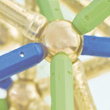 |
NECE Conference 2013
14-16 November 2013, The Hague (The Netherlands) |
|||||
 |
NECE Conference 2014
16-18 October 2014, Vienna (Austria) |
|||||
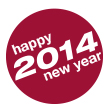 |
NECE New Year's Reception
28 January 2014, Brussels (Belgium) |
|||||
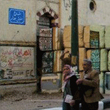 |
Focus Group “Exchange between Europe and North Africa”
The meeting at this year´s NECE Conference in The Hague started with an interactive worming up exercise facilitated by Hatem Hassan, theatre director and culture projects manager from Egypt. At the same time this exercise gave an idea about the complicated situation in Egypt by “physical” experience. Then an introduction into the societal and political developments along statistical figures by Candace Hetchler, El Sadat Association for Social Development & Welfare (Egypt) followed. The subsequent discussion round focused on the controversial evaluation of a new legislation that is under preparation and shall regulate the foundation of NGOs in Egypt. Participants from Morocco, Tunisia and Egypt compared the situation of NGOs in their country including the situation of those specialised in citizenship education. Afterwards, Annegret Wulff described the work of the Theodor Heuss Kolleg. She emphasized cooperation at eye level as one of their principles and asked for suggestions how this could be realised best in a project that they are planning in Egypt. Participants from North Africa and Europe agreed that eye level communication is an essential criteria for successful citizenship education in general, no matter where it is established. They underlined that generalised ideas about “target groups” like “the youth” should be avoided and the heterogeneity should be taken into account. The idea of participation was emphasised. If you want to reach people you should regard them as experts for their needs and include them already in the planning of projects. Finally, interests of further exchange and cooperation was summarised by the participants. The members of the Focus Group will gather again on 11 December 2013 in Alexandria, Egypt. This meeting follows up the Civic Education Conference (CEC 2013) in Alexandria on 8-10 December 2013.
|
|||||
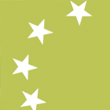 |
Focus Group “Hard-to-reach learners and youth”
The Focus Group convened in The Hague for the second time after a successful kick off workshop in Berlin, 25-26 October 2013. Initial results of the Berlin workshop, including a working definition in progress of what and who is “hard to reach” and ideas for a working programme of the group, were presented and discussed in The Hague.
|
|||||
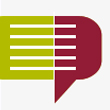 |
Focus Group CLEAR
The Focus Group took part in the Project Pitch Session at the NECE Conference 2013 and set up a display at the project market. Two workshops were organised by the project group. The first - an open workshop - presented CLEAR to NECE participants. Based on reflective and participatory concept learning processes, as well as a variety of teaching activities that were organised by the group members, the CLEAR approach drew a lot of interest. A new member was also welcomed into the focus group. In light of the progress made in developing the CLEAR approach, methodology and its successful application in a number of learning activities, the project group has decided to focus on the dissemination of these resources during the next stage of development. Priority in the next phase will be given to making the CLEAR website a useful tool for sharing the CLEAR approach, resources and experiences..
|
|||||
 |
CLEAR workshop with students from Norway and Germany
25 October 2013, Trondheim (Norway) |
|||||
| EURO-MED COOPERATIONS | ||||||
 |
From Cairo to Madrid – Cultural Innovators Network (CIN) brings together creative thinkers
In 2011, a wave of protests swept across the countries surrounding the Mediterranean. From Cairo to Madrid, young people took to the streets demanding freedom, social justice and equality. The CIN is seizing this momentum to bring together creative thinkers from around the Mediterranean and Germany. Through an exchange of ideas and experiences, participants take home new ideas and impact their societies through positive cultural change. At the crossroads between culture, art and politics, the CIN is asking questions about the future of our societies. How can we reorganise social order? How can we express our demands artistically? How can we generate more participation? You can find detailed information at the NECE website, as well as on the Cultural Innovators Network website. |
|||||
 |
AdB publishes documentation on its German-Tunisian cooperation project
Berlin, 13 November 2013 (Nr. 9/2013) |
|||||
| GOOD PRACTICE: IDEAS & EXAMPLES | ||||||
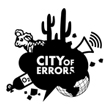 |
City of Errors – a social network for civic commitment
City of Errors is a multimedia platform dedicated to the promotion of civic commitment in large cities. It’s a space for documentaries, interviews and – most importantly – user-generated content that provides ideas, examples and lessons on how to be an active citizen. Its aim is to create a social network that provides inspiration, motivation and fun tools for finding and fixing problems in your city, and a platform for sharing your experiences with the world. To facilitate use, we are now developing a smartphone app that will function as a tool for capturing, tagging, uploading and sharing your civic commitment experiences with the community. Are you contributing to your city’s problems, or are you already part of its solutions? If you can’t say for sure, just visit: City of errors, or take a look at this trailer to find out! |
|||||
| POLITICS & POLICIES & CITIZENSHIP EDUCATION | ||||||
|
DARE policy recommendations: Rethinking education
The DARE networks board has proposed a critical investigation of the European Commission proposal “Rethinking Education: investing in skills for better socio-economic outcomes”, which was published in November 2012 [COM(2012) 669 final]. DARE welcomes the Commission’s vision on the future of education as a valuable contribution to the discussion, but believes more reflection is vital to developing a common vision for the future. |
||||||
|
European Commission agrees framework for its new Citizenship Programme
The European Commission has published its 2014 working guidelines for the implementation of its new “Europe for Citizens (2014-2020)” programme. The preliminary guidelines will come into force after final adoption of the regulations involving the “Europe for Citizens” programme by the Council. |
||||||
|
Eurydice Update October 2013 - Education in the Europe 2020 Strategy and the ET2020 Strategic Framework
Eurydice at NFER has just updated the ‘Ongoing Reforms and Policy Developments’ topic for England, Wales and Northern Ireland on Eurypedia, the European Encyclopedia on National Education Systems. The topic includes education in the ‘Europe 2020 Strategy’ and the ‘Education and Training 2020’ framework for strategic cooperation in Europe covering lifelong learning and mobility. Eurydice is the information network on education in Europe. Its ‘Education in the News’ bulletins bring together a range of recent European education news items collected from education websites, ministry websites and other publications. |
||||||
|
Report on the activities of the European Parliament’s Committee on Petitions (2012)
According to its latest report, which was published in October, the European Parliament’s Committee on Petitions last year made good progress in addressing citizen requests and complaints in the area of social issues, as well as in topics involving citizen rights and the environment. Most of the 1,986 petitions submitted in 2012 came from Germany, Britain, Italy, Romania and Spain. The Committee on Petitions is responsible for investigating petitions on possible citizenship infringements of EU citizens or legal residents of an EU Member State pertaining to activities within the scope of the legislation (Art. 227 of the Treaty on the European Union). |
||||||
|
EP approves report on volunteering and voluntary activity in Europe
The European Parliament approved a report on volunteering and voluntary activity in Europe on 17 October 2013. It indicates that volunteering is a key facet of active citizenship, and asks the European Commission to frame integrated European volunteering policy. In addition, the European Parliament is encouraging Member States and the European Commission to adopt special measures that will continue to encourage an enabling environment for volunteer activities in Europe. |
||||||
|
The European Citizens’ Initiative: Three out of eight initiatives will get necessary support
A deadline to collect the required number of statements of support for the first eight European citizens’ initiatives expired on 1 November 2013. Three initiatives were able to collect more than a million citizen signatures in across many Member States. The “Right2 Water” initiative is campaigning against viewing water as a trading commodity. “One of us” wants the EU to end financing for activities that presuppose the destruction of human embryos. “Stop Vivisection” is demanding a halt to animal experiments. |
||||||
| CALLS | ||||||
|
Call for papers: "Young Europeans in an Era of Crises – Citizenship Education in a New Perspective"
The Journal of Social Science Education has launched a call for papers with a special focus on young Europeans’ understanding of civics and citizenship and their perceptions, attitudes and behaviors with respect to specific European-related civic and political issues, institutions and policies. Deadline for submissions is 20 December 2013. |
||||||
|
2014 European parliamentary elections poster competition
Together with the European Parliament and the European Commission, Germany’s federal government is sponsoring a poster competition in the run-up to the 2014 European elections. Entries should be aimed at inspiring and motivating EU citizens to take part in next spring’s vote, as well as spotlighting their opportunities for participation: Cast your vote – and help shape Europe! The winning designs will be displayed at all ICE train stations in Germany, as well as at S-Bahn stations in Berlin. The deadline for submissions is 20 December 2013. |
||||||
|
Call for papers: “Youth work, non-formal education and youth participation”
The main aim of the special issue of the “Italian Journal of Sociology of Education” (IJSE) is to further develop the analysis on the concepts of youth work and non-formal education, on the dimensions involved within the validation of non-formal learning and the recognition and professionalization of youth work, as well as on their relationship with the initiatives to promote and enhance youth participation. The deadline for submitting abstracts for the special issue is 15 February 2014. |
||||||
|
Call for experts EACEA/2013/1
There has been a call for expressions of interest in establishing a list of experts to assist the Education, Audiovisual and Culture Executive Agency (EACEA) within the framework of the management of European Union programmes in the fields of education, audiovisual, culture, youth, sport, EU aid volunteers, citizenship or any other programmes delegated to the Agency. The call for expressions of interest is open for the lifetime of the programmes managed by the Agency (until 31 December 2020). Experts can register at any time prior to the last three months of validity of the call. |
||||||
| EVENTS | ||||||
|
EU Research & Innovation: Project Management and Financial Reporting
12-13 December 2013, Vienna (Austria) |
||||||
|
International conference on right-wing populism and extremism in Europe
17-18 March 2014, Cologne (Germany) |
||||||
|
European Youth Event 2014 (EYE) – European Parliament
9-11 May 2014, Strasbourg (France) |
||||||
|
Current publications on issues involving citizenship education in Europe can be found at the NECE website. |
||||||